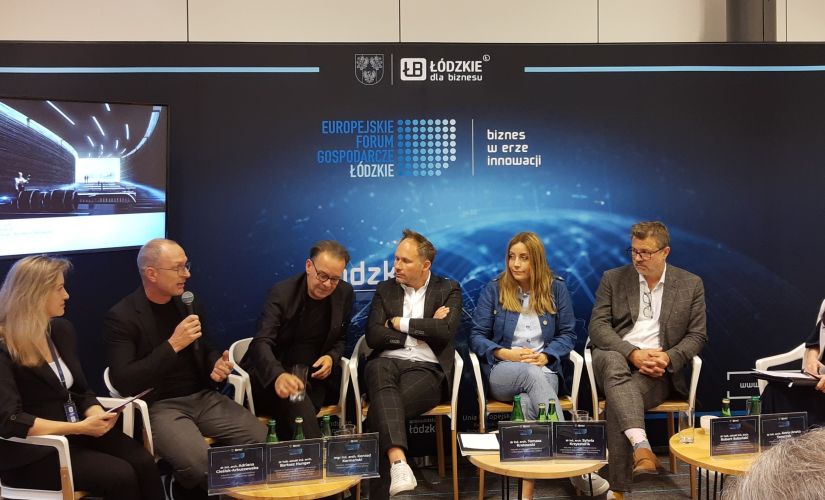Panelists included academics and practicians, specialists in urban design, architecture and interior design affiliated with the IAiU TUL. The debate was moderated by dr. inż. arch. Aneta Tomczak and dr. inż. arch. Adriana Cieślak-Arkuszewska, both representing the IAiU Department of Urban Design and Urban Revitalization. Dr inż. arch. Katarzyna Janicka-Świerguła also contributed to the discussion.
In the discussion, a strong link was emphasized between a high standard of scientific research and the effective development of innovation, both at the level of technology as well as that of strategic management. It was highlighted that research addressing the most critical and topical problems of the built environment offers potential for the development of the business environment for individual investors and local government that simply cannot be overestimated.
Managing urban development
The issue of urban revitalization and recycling was also raised, and in a broader context, that of optimizing the processes of managing urban development and its adaptation to climate change.
It was stressed that revitalization, seen as a complex, interdisciplinary process aimed at the quality of life of the residents, should be achieved through knowledge-based multifaceted activities on the spatial, economic and social levels. Attention was drawn to the fact that conscious management of the city and the region can contribute to reducing investment pressure on areas of cultural and environmental significance, and to optimizing development by creating an environment that is more conducive to investment.
Panelists included theoretical considerations in the discussion on urban development, as well as confronted those with practical implementation opportunities at the municipal level. Both practical issues, derived from hands-on experience, as well as formal and legal constraints were brought up.
Sustainable architecture
In terms of architecture, the panelists discussed the problems of renovation and adaptation of buildings to new functions, sustainable architectural design, and building life cycle. It was underscored that the repurposing existing architectural substance in the implementation of new and innovative investments appears to be especially relevant considering the need to restrain investment expansion into non-urbanized areas.
The interdisciplinary aspect of the research undertaken, which requires both broad technical knowledge as well as that of the arts and humanities, also reverberated in the discussion. One should not ignore the fact that the experience built up through the practice of design also constitutes a form of research (Research by Design), which inextricably links scientific theory and practical application in architecture and urban planning.
New postgraduate certificate programs
Furthermore, the speakers pointed out the relationship between the research conducted by the academic staff and the commercial portfolio of the Institute of Architecture and Urban Planning TUL. The curriculum of the postgraduate certificate programs to be taught at the Institute starting in the coming academic year was presented. Urban planning topics will be dealt with in the program geared towards the local government workers 'Urban Design Studio. Learning through practice', whereas specific architectural approaches will be taught in the 'Interior Design' program. The objective is to provide relevant education focused on building practical skills of the participants to prepare them for today's job market.
Photo: Panelists and moderators: from left: dr inż. arch. Adriana Cieślak-Arkuszewska, dr hab. Bartosz Hunger, mgr inż. arch. Konrad Karmański, dr inż. arch. Tomasz Krotowski, dr inż. arch. Sylwia Krzysztofik, dr hab. sztuki inż. arch. Robert Sobański, dr inż. arch. Anna Aneta Tomczak (Photo by dr inż. arch. Tomasz Krystkowski).
12-14 June 2023

